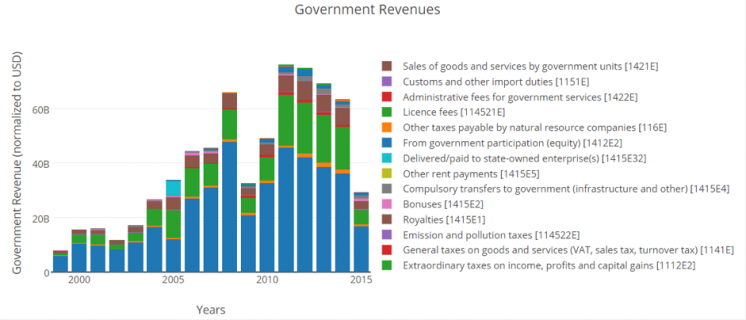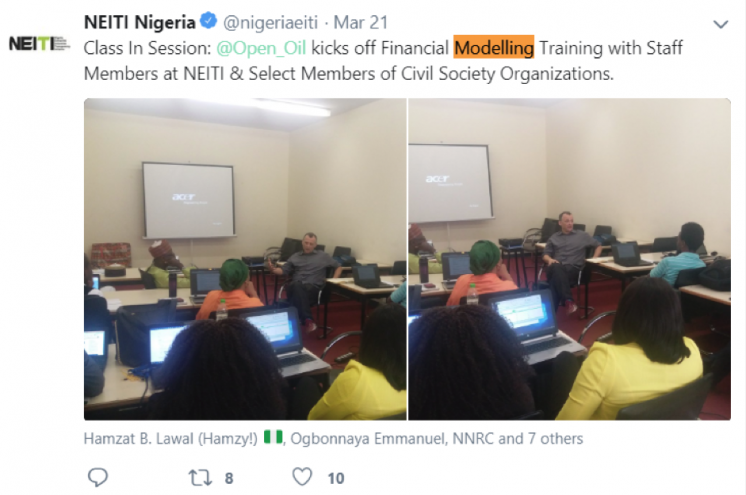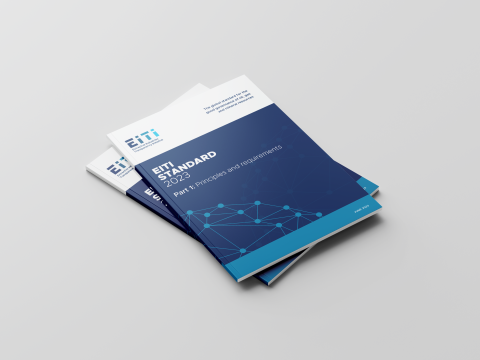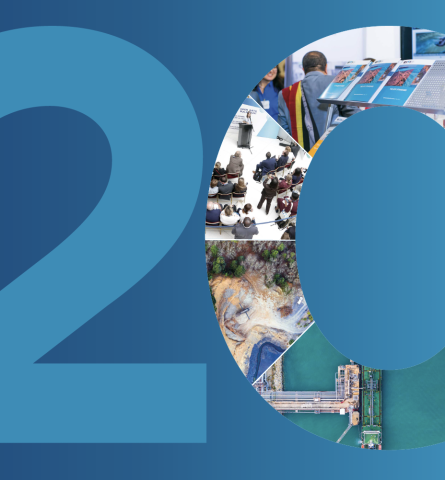
Dealing with asystematic disclosures: the evolving role of NEITI
Dealing with asystematic disclosures: the evolving role of NEITI
Nigeria EITI’s (NEITI) stakeholder workshop held in Abuja in May confirmed the trend towards disclosure by governments and companies, rather than through data collected by a third party. Transparency is becoming more automatic and widespread in Nigeria’s extractive extractives sector. This has implications for NEITI’s role.
In January 2017 the EITI Board recognised Nigeria’s role as a pioneer of extractive sector transparency. The expanded disclosures by NEITI on behalf of the Nigerian National Petroleum Corporation (NNPC) is one example. Nigeria was the first country to disclose volumes collected, sold and proceeds generated from their national oil company’s share of in-kind revenues. In 2015, the proceeds of NNPC’s Crude Oil Marketing Division from in-kind revenues amounted to more than USD 12.6 billion or half of the total revenues from extractives (see Figure 1 below). These disclosures went beyond the EITI requirements by detailing the terms of sales and buyers of Nigeria’s oil production.
Figure 1: Production entitlements (in-kind revenues) in Nigeria

Source: EITI Summary data for Nigeria, https://eiti.org/data
Nigeria is also one of several EITI countries that have enacted the EITI process through national legislation - the 2007 NEITI Act. The Act requires reporting from related government bodies and from all extractive industry companies. It provides a strong basis for transparency in the sector.
In July 2018, Nigeria will undergo their second Validation under the EITI Standard. While Validation will show how NEITI deals with specific EITI Requirements, the NEITI Act ensures that their core activities go beyond what the EITI requires of implementing countries. The challenge is to use both of these platforms to best inform public debate in Nigeria.
Open data and systematic disclosures
Since 2015 the EITI has developed policies and practices to address data accessibility. Countries must now develop open data policies and publish data in open formats. In other words, EITI data must be free for anyone to access, use and share.
EITI implementers and practitioners were hesitant in the beginning. Some independent administrators (IAs) argued that their responsibility did not encompass the full release of the data collected. In other cases, multi-stakeholder groups (MSGs) were concerned with data manipulation. These concerns and reservations have been addressed and today, EITI countries perform open disclosures as part of their regular process.
It was out of this initial discussion on open data, that systematic disclosure or mainstreaming emerged. The EITI Board this year agreed several recommendations establishing such disclosures as the default expectation in the future.
“Self-disclosure” in Nigeria
Encouragingly, our analysis of ‘self-disclosures’ by agencies and companies in Nigeria last week revealed that it is already quite common. EITI data is now available as part of reports, statistical bulletins, or other publications by companies and government agencies. The main challenges in-country arise when these efforts are not systematic or regular.
At the workshop, the World Bank highlighted NNPC’s monthly disclosures of petroleum statistics. The Monthly Petroleum Information (MPI) provides a steady and timely flow of data. It also contributes to annual statistical bulletins. Occasionally these numbers are compared to the annual statistics of the oil and gas regulator in Nigeria, the Department of Petroleum Resources. Even subsidiaries of NNPC such as Nigeria LNG (NLNG) now publishes their NLNG Facts and Figures. The disclosed data covers everything from gas production to payments to governments and other data, from 2014 onward.
However, most of the recent disclosures are not subject to analysis. Publications are irregular or do not constitute open data disclosures. Reporting often does not happen for several months or skips certain intervals, making the disclosures erratic and unpredictable. Still, disclosures have started and are here to stay. Although none of the publications referenced are made using open data formats, NEITI adds value by opening up and explaining the information to the public.
NEITI is fully committed to open data disclosures. Alongside its 2015 Oil and Gas report, NEITI published an excel file. It contains every single graph and table of their report, making the access, use and sharing of data much easier. Nigeria’s summary data for 1999-2015 is available through its summary data (see the graph below). These data can be compared with other countries.
Figure 2: Nigerian revenues from the oil, gas and solid minerals sector

Source: EITI Summary data for Nigeria, https://eiti.org/data, and country page https://eiti.org/Nigeria
A changing role
All participants of the workshop highlighted the need for NEITI’s role to change. In an environment where government and corporate entities publish data independently, NEITI’s Executive Secretary Waziri Adio argued that NEITI is not always in the best position to collect and disclose extractive sector data. They are, however, in an exceptional position to assess whether data is accessible, engaging and meaningful. NEITI’s more recent analyses prove this point. NEITI has developed several products where the focus is to use existing information, rather than creating information. Through Policy Briefs, Quarterly Reviews and Occasional Papers, NEITI is one of the most influential national processes in the EITI family for informing public debate.
In short, NEITI must in the future become more than what the EITI is today. NEITI can strike a good balance between simplifying the data built on a platform of technical rigour and analyses. When several good policies are discussed, NEITI could provide an evidence-based analysis of the policies. Such skills determine where capacities must expand in the future. To respond to the changing environment NEITI is already developing the secretariat’s skills in financial modelling and other methods. Once they have acquired this understanding, the knowledge can be transferred to other stakeholders as well – civil society and other government agencies.

NEITI’s tweet on Financial Modelling course with OpenOil
Conclusion
NEITI’s role can be particularly beneficial in a country undergoing reforms. The Nigerian President is expected to sign the Petroleum Industry Governance Bill (PIGB) in 2018. In 2017 the National Petroleum Policy was developed by the Ministry of Petroleum Resources. The policy acknowledged a lack of transparency in the sector while pledging more systematic disclosures by the Nigerian government.
The policy specifically mentions transparency in the licensing process; contracts; fiscal, financial and production data; prices and export data; revenues of the government; and the government’s share of in-kind revenues. NEITI should cooperate with the ministry when such policies are put into practice.
As Nigeria’s second Validation inches closer, NEITI is focusing its efforts on making sure that all the required disclosures are adequately addressed. While corrective actions are important, the most important Validation is not made by EITI Board, but by the people




